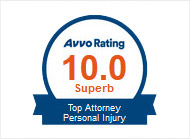When someone is charged with a crime in New Jersey, it can feel like their future is at risk. A conviction may lead to jail time, fines, and a permanent criminal record. For some first-time offenders, however, there’s a valuable option that can help them avoid a conviction: Pretrial Intervention, or PTI.
PTI is a diversionary program available in New Jersey’s Superior Courts. It offers eligible individuals the chance to avoid formal prosecution and, if successful, have their charges dismissed.
What Is PTI?
The Pretrial Intervention Program allows certain defendants to enter a period of supervision instead of going to trial. PTI is not available in municipal courts. It is only for indictable offenses—more serious crimes that are heard in the Superior Court.
The goal of PTI is to give people—especially first-time offenders—a second chance. It allows individuals to avoid the stigma of a criminal conviction while still being held accountable for their actions. PTI emphasizes rehabilitation over punishment.
If a person is accepted into PTI and successfully completes the program, the charges against them are dismissed. There is no conviction, no criminal record, and no jail time.
Who Is Eligible for PTI in New Jersey?
PTI is typically reserved for first-time offenders who are charged with non-violent crimes. However, each case is considered individually.
General eligibility criteria include:
-
The applicant must be charged with an indictable offense (a felony).
-
The applicant should have no prior criminal convictions.
-
The offense should not involve violence or organized crime.
-
The offense should not involve public officials or public corruption.
-
The applicant must be willing to accept supervision and meet the program’s terms.
There are exceptions. People with prior criminal records may apply but must present compelling reasons for admission. Likewise, people charged with certain drug crimes or theft offenses may qualify if the prosecutor approves.
How Does the PTI Application Process Work?
Applying for PTI is a structured process. Here’s how it typically unfolds:
-
Application
A defendant applies for PTI through the Criminal Division of the Superior Court. The application must be filed within 28 days of the arraignment unless the court allows an extension. -
Interview and Evaluation
A probation officer interviews the defendant and evaluates their suitability for the program. The officer considers many factors, including:-
The nature of the offense
-
The defendant’s background
-
The impact on the victim
-
Whether the defendant is a risk to public safety
-
-
Recommendation
The probation officer prepares a report and recommends approval or denial. That report is submitted to the prosecutor and judge. -
Prosecutor’s Decision
The prosecutor has the final say in many cases. Their approval is required, especially in drug-related offenses or cases involving police officers, public figures, or victims. -
Judicial Review
If the prosecutor approves the application, the judge will review the case and issue a final decision.
What Does PTI Involve?
Once admitted into PTI, the defendant enters a period of supervised treatment. The program typically lasts between 12 and 36 months. The court may impose conditions, including:
-
Regular meetings with a probation officer
-
Drug or alcohol testing
-
Community service
-
Counseling or mental health treatment
-
Restitution to victims
-
Avoiding new criminal charges
Each PTI agreement is customized to the individual. If the person meets all the conditions and stays out of trouble, the charges are dismissed at the end of the term.
What Happens If Someone Fails PTI?
If a person violates the conditions of PTI or is arrested for a new offense during the supervision period, they may be removed from the program. When this happens, the case returns to the regular criminal court system. The individual may then face trial and possible conviction on the original charges.
How PTI Helps First-Time Offenders
PTI is not just a way to avoid jail. It’s an opportunity to make lasting changes.
For people struggling with addiction, PTI may include treatment. For people who made a poor decision but show genuine remorse, it’s a chance to move forward. For young adults, it can prevent a mistake from following them for life.
The program can reduce the burden on the criminal justice system and lower recidivism rates. It also saves taxpayers money by reducing incarceration and court costs.
Real-World Data on PTI in New Jersey
PTI is not rare in New Jersey. According to reports from the New Jersey Judiciary:
-
In recent years, thousands of PTI applications are filed annually.
-
A majority of successful applicants complete the program without reoffending.
-
The state has consistently supported PTI as an alternative to incarceration.
Still, not everyone who qualifies is accepted. And not every application is approved. That’s why having a knowledgeable attorney on your side is so important.
Can You Expunge a PTI Record?
Yes. If you successfully complete PTI and the charges are dismissed, you may apply to have your record expunged six months later.
Expungement removes the arrest and charges from public records. It allows individuals to apply for jobs, housing, and licenses without disclosing the PTI case. However, certain government agencies may still access the records in limited situations.
The Importance of Legal Representation
Applying for PTI is not automatic. The process involves deadlines, forms, interviews, and legal arguments. Prosecutors and judges have discretion and may deny an application for many reasons.
An experienced defense attorney can help:
-
Determine if PTI is a good fit
-
Ensure the application is complete and submitted on time
-
Advocate for acceptance based on your history and circumstances
-
Negotiate terms of supervision
-
Assist with post-completion expungement
Some prosecutors may initially oppose PTI. A strong legal advocate can present mitigating factors and push for approval. Without legal guidance, a defendant may miss this life-changing opportunity.
Who Should Consider PTI?
PTI may be a good option if:
-
You have no prior convictions
-
You are facing your first indictable offense
-
The charges are non-violent
-
You are willing to follow rules and complete supervision
Even if you think you don’t qualify, it may be worth exploring. In some cases, the law allows exceptions. Each case is unique, and judges often consider the whole picture.
The criminal justice system is tough. But for many people, PTI offers a rare second chance. It’s a program built on the belief that some mistakes do not have to define a person forever. It recognizes that justice should include fairness, compassion, and hope.
If you are facing criminal charges in New Jersey, time matters. You must apply for PTI early in the process. And you need strong legal representation to present your case in the best light.
Gregg A. Wisotsky, Esq., Partner at Javerbaum Wurgaft Hicks Kahn Wikstrom & Sinins, PC, has helped many clients apply for PTI and successfully complete the program. His legal team offers honest, experienced guidance and takes the time to understand each client’s situation.
For a free phone consultation, call 973-898-0161 or contact the office online. If you want a second chance, PTI might be the opportunity you need.













Great overview of PTI in New Jersey! It’s encouraging to see diversion programs focused on rehabilitation. Clear eligibility criteria and real hope for first-time offenders. Thanks for sharing this important information.